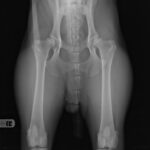Can Dogs Eat Dragon Fruit
Exploring the Nutritional Benefits and Risks of Feeding Dragon Fruit to Dogs
If you’re a dog owner who likes to share your food with your furry friend, you might be curious about whether dragon fruit is safe and healthy for dogs to eat. Dragon fruit, also known as pitaya or strawberry pear, is a tropical fruit that has become increasingly popular in recent years due to its exotic appearance and alleged health benefits for humans. However, dogs have different digestive systems and nutritional needs than humans, so it’s important to investigate whether feeding them dragon fruit could be beneficial or harmful.
In this article, we’ll delve into the scientific research on the nutritional content of dragon fruit, the potential risks of feeding it to dogs, and some practical tips for incorporating it into their diet if desired. We’ll also address some common myths and misconceptions about dragon fruit and dogs, and add some humor along the way. So, let’s get started!
What Is Dragon Fruit?
Dragon fruit comes from several species of cactus native to Mexico, Central America, and South America. The most widely cultivated varieties are Hylocereus undatus (white-fleshed) and Hylocereus costaricensis (red-fleshed), which have similar nutritional profiles but differ in taste and color. Dragon fruit has a distinctive shape, with a scaly exterior that ranges from yellowish-green to pink or reddish-purple, and a juicy interior filled with small black seeds.
Dragon fruit is low in calories but rich in fiber, vitamins C and B6, iron, magnesium, and antioxidants such as betacyanins and flavonoids. These nutrients contribute to various health benefits for humans, such as boosting immunity, reducing inflammation, improving digestion, promoting skin health, and preventing chronic diseases like cancer and diabetes. However, not all of these benefits apply to dogs.
Can Dogs Eat Dragon Fruit?
The short answer is yes, dogs can eat dragon fruit in moderation, as long as it’s prepared and served properly. Dragon fruit is not toxic or poisonous to dogs, unlike some other fruits such as grapes, raisins, and avocados that can cause serious health problems like kidney failure, vomiting, diarrhea, and seizures. However, that doesn’t mean that dragon fruit is a superfood for dogs or that it’s suitable for all dogs.
Firstly, it’s important to note that dogs are primarily carnivorous animals that have evolved to digest meat and fat more efficiently than plant-based foods. While some vegetables and fruits can provide valuable nutrients and fiber for dogs, they should not replace the majority of their diet. A balanced dog diet should consist of high-quality protein sources like meat, poultry, fish, or eggs; healthy fats like omega-3 fatty acids; and essential vitamins and minerals that may need to be supplemented if not found in sufficient amounts in the food.
Secondly, even though dragon fruit is low in calories and sugar compared to many other fruits, it still contains natural sugars that can contribute to weight gain, dental problems, or digestive upset if consumed excessively or too frequently. Dogs with diabetes, obesity, or sensitive stomachs may need to avoid or limit their intake of dragon fruit.
Thirdly, the texture and taste of dragon fruit may not appeal to all dogs. Some dogs may find the crunchy seeds or slimy flesh unappetizing or difficult to swallow. Others may develop an allergic reaction or intolerance to dragon fruit due to its acidity or allergenic proteins. Signs of a possible allergic reaction in dogs include itching, swelling, redness, hives, coughing, sneezing, vomiting, diarrhea, or difficulty breathing. If your dog shows any of these symptoms after eating dragon fruit (or any other food), stop feeding it immediately and consult your veterinarian.
How Much Dragon Fruit Can Dogs Eat?
The amount of dragon fruit that you can safely feed to your dog depends on several factors, such as their size, age, activity level, health status, and dietary preferences. As a general guideline, it’s recommended to give dogs small pieces or slices of dragon fruit as a treat or supplement rather than a meal replacement. A few chunks of dragon fruit per week are usually enough for most dogs to enjoy the taste and benefits without any adverse effects.
To avoid choking hazards or digestive issues, make sure to remove the outer skin and cut the flesh into bite-sized portions that your dog can chew easily. You can also puree or blend the dragon fruit with other dog-friendly fruits or vegetables like apples, bananas, carrots, or sweet potatoes to create a tasty and nutritious smoothie or topping for their kibble. Just be mindful of the overall calorie and nutrient content of the mixture and adjust your dog’s daily food intake accordingly.
If you’re not sure whether your dog will like or tolerate dragon fruit, start with a small piece and observe their reaction for a few hours. If they show no signs of discomfort or disinterest, you can gradually increase the portion size over time. However, if your dog refuses to eat dragon fruit or shows signs of aversion or discomfort after eating it, don’t force them to eat it again. Dogs have different taste preferences and tolerances just like humans do, so it’s important to respect their individual needs and choices.
Conclusion
In conclusion, while dogs can technically eat dragon fruit without major harm, there is no compelling reason why they should eat it regularly or in large amounts. Dragon fruit has some nutritional benefits that may complement a balanced dog diet if given in moderation and in appropriate forms. However, feeding dogs too much fruit (or any human food) can disrupt their digestive system, cause nutritional imbalances, lead to obesity or diabetes, and create unnecessary expenses for vet bills.
Therefore, as a responsible dog owner, it’s important to consult your veterinarian before adding any new food or supplement to your dog’s diet, including dragon fruit. Your vet can advise you on the specific nutritional needs and restrictions of your dog based on their breed, age, health history, and lifestyle. They can also help you identify any potential risks or concerns related to feeding dragon fruit to your dog, and suggest alternative sources of nutrients if needed.
In summary, while it may be tempting to share your love of exotic fruits with your furry companion, it’s crucial to prioritize their health and well-being over our own curiosity or enjoyment. Dogs rely on us to provide them with the best possible nutrition and care that aligns with their biological and evolutionary needs. So, let’s give them the respect and attention they deserve by being informed and mindful about what we feed them. And if you happen to catch your dog staring at a dragon fruit with hunger in their eyes, just remember that there are plenty of other healthy and tasty treats that they can enjoy without risking their health or happiness. Woof!



